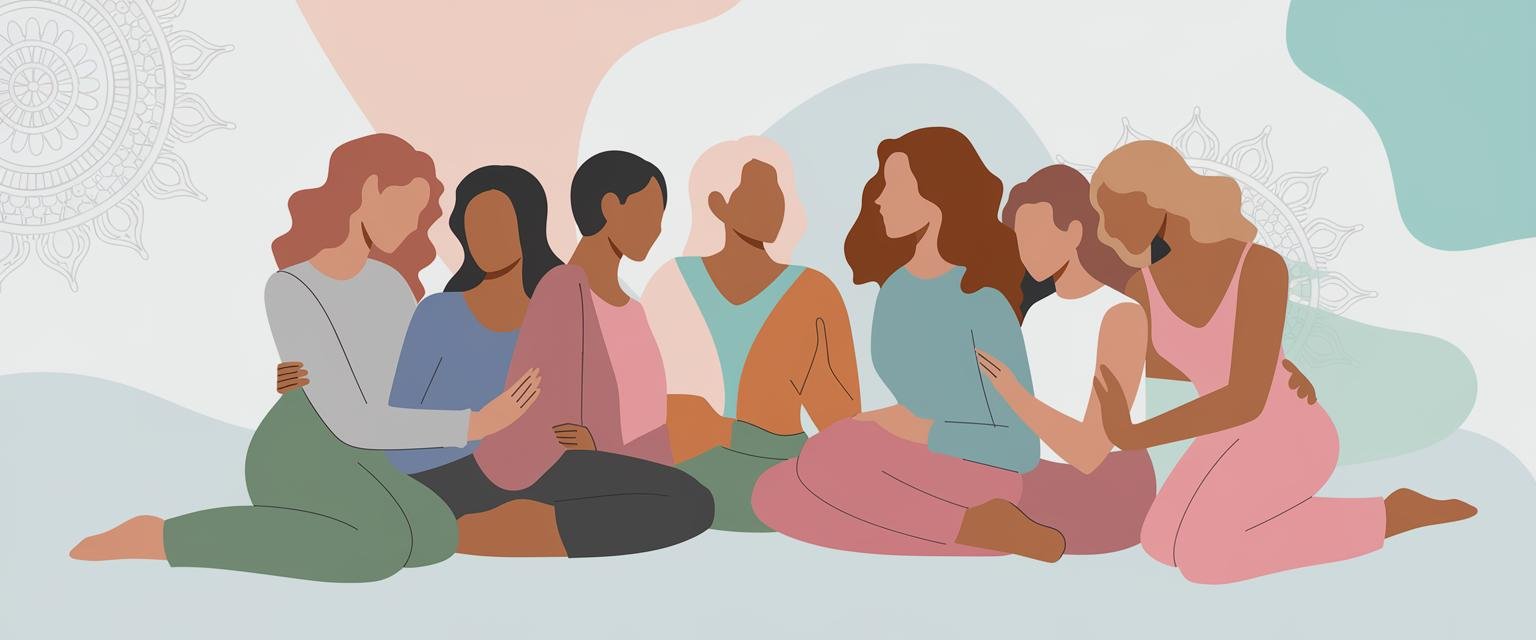Women Supporting Women: Serenity and Restful Practices
Introduction
When was the last time you genuinely rested without feeling guilty? For many women, the answer might be “I can’t remember.” We live in a world that glorifies constant productivity and celebrates the woman who seemingly does it all. But beneath this celebration lies exhaustion, burnout, and disconnection from ourselves. The truth is, rest isn’t just nice—it’s necessary. And one of the most powerful ways we can support this truth is through women supporting other women in prioritizing rest and rejecting the harmful “do it all” narrative.
Table of Contents
- The Vital Importance of Rest
- Dismantling the “Superwoman” Myth Together
- Building Supportive Female Networks
- Quick Wellness Questions
- Finding Your Path Forward
The Vital Importance of Rest
Why Rest Is Non-Negotiable
Rest isn’t simply the absence of work—it’s an active process that allows our bodies and minds to repair, integrate experiences, and build resilience. Research shows that adequate rest improves immune function, enhances cognitive abilities, and regulates emotions. For women especially, who often juggle multiple roles and responsibilities, rest becomes not just beneficial but essential for sustained well-being.
Cultural Context of Rest for Women
In South Asian cultures particularly, women’s rest is often treated as secondary to family needs. The expectation to be constantly available—cooking, cleaning, caregiving, working—creates an environment where rest feels like luxury rather than necessity. This cultural context makes it even more important for women to band together in affirming each other’s right to rest.
Dismantling the “Superwoman” Myth Together
The Cost of Constant Doing
The “superwoman” ideal has been marketed to women for decades—the flawless professional who also maintains a perfect home, relationship, appearance, and social life. This unattainable standard has real consequences: increased anxiety, depression, and physical health problems. Studies show that women who try to embody this ideal experience significantly higher rates of burnout and stress-related illness.
Collective Resistance Strategies
Challenging the “do it all” myth requires collective action. When we openly discuss our limitations, needs, and boundaries, we create space for others to do the same. This might look like openly talking about hiring help without shame, being honest about workload capacity, or simply acknowledging that you’re taking a weekend completely off. These small acts of resistance gain power when shared within supportive female communities.
Building Supportive Female Networks
Creating Rest-Positive Circles
Supportive networks don’t just happen—they’re built with intention. Consider forming a small group of friends with an explicit agreement to support each other’s rest and self-care. This might include regular check-ins about rest goals, celebrating boundaries, and offering practical support like childcare exchanges or meal sharing that creates pockets of rest for each member.
Practical Ways to Support Other Women’s Rest
Supporting rest goes beyond encouragement—it requires practical action. Offer specific help rather than the vague “let me know if you need anything.” Normalize discussing workload distribution in households and workplaces. Celebrate friends who set boundaries rather than praising those who “do it all.” When a woman in your circle takes time off or says no to additional responsibilities, respond with genuine support rather than subtle judgment.
Digital Communities as Support Systems
Online spaces can be powerful for women seeking rest-positive communities. From mindful social media groups to virtual meditation circles, digital platforms allow women to connect across geographic and cultural boundaries. These communities can normalize rest through shared stories, practical tips, and gentle accountability for self-care practices.
Quick Wellness Questions
Q: How can women collectively challenge the expectation to “do it all”?
A: Start by making your own rest visible rather than hidden. Share openly when you’re taking time for yourself, when you’ve hired help, or when you’ve simplified expectations. Call out unrealistic standards in media and advertising. Most importantly, respond with understanding rather than judgment when other women set boundaries or acknowledge their limitations.
Q: Why is it important for women to encourage each other in taking rest?
A: When women support each other’s rest, we help counter powerful cultural messages that tie women’s worth to productivity and service to others. This solidarity creates safety for vulnerability and authentic self-care. Additionally, seeing other women prioritize rest helps dismantle our own internalized guilt about taking necessary downtime.
Q: How can I encourage rest in my female friends without sounding judgmental?
A: Lead with your own experience rather than advice. Share how rest has benefited you or how you’re working to prioritize it. Ask open questions about what would help them feel more rested. Offer specific support rather than vague suggestions, and validate their feelings about the challenges of making time for themselves.
Finding Your Path Forward
Creating a culture where women genuinely support each other’s rest isn’t just about feeling better—it’s about challenging deeply entrenched social expectations that harm our collective wellbeing. By forming supportive networks, speaking openly about our needs, and taking practical actions to support each other, we can begin to transform how rest is viewed and valued in our communities. The next time you feel guilty about taking time for yourself, remember that your rest is an act of resistance that benefits not just you, but every woman in your circle.
This week, consider one small way you can support another woman’s rest—whether offering childcare to a friend, covering for a colleague, or simply checking in about someone’s boundaries. These small acts build toward the cultural shift we all need.
Subscribe to our newsletter for weekly wellness tips and mindful practices from Hey Mandala.

